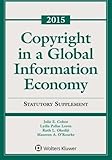All Categories
VB6: Eat Vegan Before 6:00 to Lose Weight and Restore Your Health . . . for Good
Share Tweet
*Price and Stocks may change without prior notice
*Packaging of actual item may differ from photo shown
- Electrical items MAY be 110 volts.
- 7 Day Return Policy
- All products are genuine and original








About VB6: Eat Vegan Before 6:00 To Lose Weight And
Product Description If you’re one of the millions who have thought of trying a vegan diet but fear it’s too monotonous or unfamiliar, VB6 will introduce a flexible way of eating that you can really live with for life.Six years ago, an overweight, pre-diabetic Mark Bittman faced a medical directive: adopt a vegan diet or go on medication. He was no fan of a lifelong regimen of pills, but as a food writer he lived—and worked—to eat. So neither choice was appealing. His solution was a deal with himself. He would become a “flexitarian.” He adopted a diet heavy in vegetables, fruits, and grains by following a healthy vegan diet (no meat, dairy, or processed foods) all day. After 6:00 p.m. he’d eat however he wanted, though mostly in moderation. Beyond that, his plan involved no gimmicks, scales, calorie counting, or point systems. And there were no so-called forbidden foods—he ate mostly home-cooked meals that were as varied and satisfying as they were delicious. He called this plan Vegan Before 6:00 (VB6 for short), and the results were swift and impressive. Best of all, they proved to be lasting and sustainable over the long haul. Bittman lost 35 pounds and saw all of his blood numbers move in the right direction. Using extensive scientific evidence to support his plan, the acclaimed cookbook author and food policy columnist shows why his VB6 approach succeeds when so many other regimens not only fail, but can actually lead to unwanted weight gain. He then provides all the necessary tools for making the switch to a flexitarian diet: lists for stocking the pantry, strategies for eating away from home in a variety of situations, pointers for making cooking on a daily basis both convenient and enjoyable, and a complete 28-day eating plan showing VB6 in action. Finally, Bittman provides more than 60 recipes for vegan breakfasts, lunches, and snacks, as well as non-vegan dinners that embrace the spirit of a vegetable- and grain-forward diet. About the Author MARK BITTMAN is one of the country's best-known and most widely respected food writers. His How to Cook Everything books, with one million copies in print, are a mainstay of the modern kitchen. Bittman writes for the Opinion section of New York Times on food policy and cooking, and is a columnist for the New York Times Magazine. His "The Minimalist" cooking show, based on his popular NYT column, can be seen on the Cooking Channel. His most recent book, VB6, debuted at #1 on the New York Times bestseller list in its first week on sale. Excerpt. © Reprinted by permission. All rights reserved. Six years ago, the man I most trusted with my health said to me, “You should probably become a vegan.” Not exactly the words I’d wanted to hear, and certainly not what I was expecting. But I’d asked Sid Baker, my doctor of thirty years, what he recommended, given that he’d just told me that at age 57, I had developed the pre-diabetic, pre-heart-disease symptoms typical of a middle-aged man who’d spent his life eating without discipline. He’d laid out the depressing facts for me: “Your blood numbers have always been fine but now they’re not. You weigh 40 pounds more than you should. You’re complaining of sleep apnea. You’re talking about knee surgery, which is a direct result of your being overweight. Your cholesterol, which has always been normal up until now, isn’t. Same with your blood sugar; it’s moved into the danger zone.” A more conventional doc would’ve simply put me on a drug like Lipitor, and maybe a low-fat diet. But Lipitor, one of the statin drugs that lowers cholesterol, is a permanent drug: Once you start taking it, you don’t stop. I didn’t like the idea of that. Furthermore, its effectiveness in healthy people has never been established, and it’s also been implicated in memory loss and other cognitive complications; I didn’t like the idea of any of that, either. And at this point, low-fat and low-carbohydrate diets have essentially been discredited: They m




 (2)
(2)














